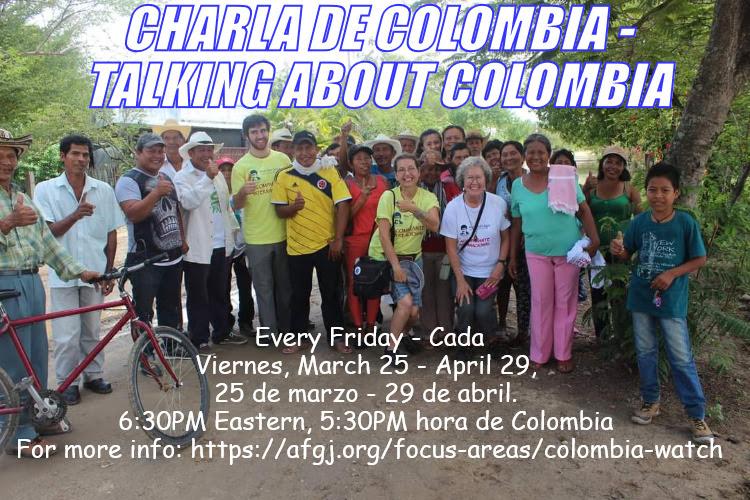For the next six Fridays, AFGJ will be sponsoring a series of “Happy Hours”, each one an hour long, and featuring different social and political leaders who will help us understand Colombia’s elections and popular movements. These “Happy Hours” will not be your regular webinars where speakers give formal presentations followed by further discussion. Instead, the hosts and guests will share some social time together, conversing, as we learn details about the personal histories and lives of our guests interwoven with tales of struggle and discussions about their dreams and hopes for a New Colombia. Each show will also provide a chance for our guests to share some of the music, poetry, and other cultural expressions of resistance that help them keep their spirits up.
- Home
- About Us
- Issues
- Countries
- Rapid Response Network
- Young Adults
- Get Involved
- Calendar
- Donate
- Blog


